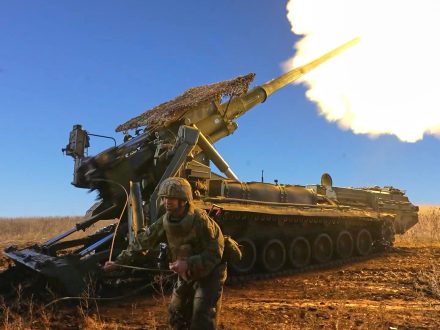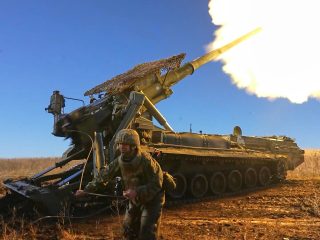The United States issued a new waiver on Monday suspending its toughest sanctions on Syria as interim Syrian President Ahmed al-Sharaa visited Washington and met President Donald Trump at the White House.
The move coincided with al-Sharaa’s visit and underscored Damascus’s efforts to rebuild ties with the West after the ousting of former President Bashar al-Assad. The Syrian presidency said discussions with Trump focused on bilateral relations, ways to strengthen and develop them, and regional and international issues of common interest.
Trump praised al-Sharaa after the meeting, saying, “He comes from a very tough place, and he’s a tough guy. I like him. We’ll do everything we can to make Syria successful because that’s part of the Middle East. We have peace now in the Middle East – the first time that anyone can remember that ever happening.” The US president has repeatedly framed a US-brokered Gaza ceasefire as a historic peace, even as Israeli strikes continued across the occupied Palestinian territories and Lebanon.
Al-Sharaa’s rise from an armed opposition leader who helped topple al-Assad late last year to interim president has been dramatic. He led fighters that ended Syria’s civil war, which began as an uprising against Assad in 2011. He is the first Syrian president to visit the White House; Trump had previously met him in May during a trip to Saudi Arabia, when the president announced his intention to lift sanctions on Damascus.
The waiver announced Monday suspends Caesar Act sanctions — which had prohibited US business with the Syrian government and military — for an additional six months. Syrian advocates are lobbying Congress to repeal the law permanently. The US Treasury said removing sanctions would support Syria’s reconstruction, boost prosperity for all citizens including minorities, and help combat terrorism, adding that Trump was “delivering on his commitment to give Syria ‘a chance at greatness’ and to let them rebuild and thrive by lifting US sanctions and ensuring accountability for harmful actors.”
Several reports have suggested Syria might join the US-led international coalition against ISIL, a step that could enable a US troop withdrawal. Al-Sharaa, 43, was captured by US forces in Iraq during the US occupation and previously led al-Qaeda’s Syria branch. Less than a year ago the US had designated him a “global terrorist” with a $10m reward for information leading to his arrest. He split from al-Qaeda in 2016 and, since seizing power, has dropped his nom de guerre Abu Mohammed al-Julani, using his birth name while promoting a more tolerant, inclusive Syria. He addressed the UN General Assembly earlier this year, saying Syria was “reclaiming its rightful place among the nations of the world,” and Western countries have slowly begun to re-engage with Damascus after decades of hostility toward the previous regime.
Al-Sharaa’s visit to the White House was relatively low-key: he entered through a side door, was not greeted by Trump outside, and there was no joint photo opportunity or news conference.
On Sunday he met Republican Congressman Brian Mast, chair of the House Foreign Affairs Committee and a prominent pro-Israel figure. Mast said they had a long, serious conversation about building a future for Syrians free of war, ISIS, and extremism. Mast is reported to be skeptical of lifting sanctions.
Since al-Assad’s fall, Israel has regularly struck Syrian military and state targets and expanded operations in the south beyond the occupied Golan Heights. Al-Sharaa has said Syria would not threaten Israel and has detained senior Palestinian Islamic Jihad figures. He has sought a security agreement with Israel to secure the withdrawal of Israeli forces from areas occupied during the recent conflict, but those overtures have not halted Israeli attacks.
When asked about Syria, Trump told reporters he was working with Israel on “getting along with Syria” and suggested announcements on Syria could be expected. “We want to see Syria become a country that’s very successful. And I think this leader can do it. I really do. And people said he’s had a rough past. We’ve all had rough pasts,” he said.


